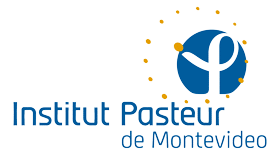A project led by researchers from the Institut Pasteur de Montevideo invites the population to take part in the first study to sequence the ‘Uruguayan genome’, an initiative aimed at better understanding health and diseases in the country. To participate, individuals who donate blood at the Hospital de Clínicas (a public hospital in Montevideo) are also asked to donate a sample to contribute to the genetic knowledge of the population.
The study aims to gather around 850 samples from a representative group of the population, which will allow for the analysis and comparison of this genetic information with data stored in genetic banks from other countries. This will help identify, for example, DNA differences associated with diseases. Genomic sequencing will thus enable a better understanding of Uruguayan genetic diversity and provide baseline data that will aid future studies on its health implications.
The Uruguayan population is known to comprise indigenous, European, and African ancestries, whose mixture and historical migrations have shaped the genetic characteristics of the population. The Institut Pasteur de Montevideo has been studying these topics since 2015 through the Urugenomes project (urugenomes.org), which consisted of three phases with different objectives. One phase characterized the genomes of 30 randomly selected Uruguayans and later expanded to include dozens more to identify ancestry and aspects related to rare diseases.
Building on Urugenomes, the new project expands the number of participants to create a representative sample of the population.
To participate, candidates must be over 18 years old, donate blood at the Hospital de Clínicas, and agree to donate a small amount of that blood for the study (no additional blood draw is required). Participants will consent to their genetic information being stored in international databases for scientific use, with assurances of anonymity. In return, participants will receive a simplified ancestry report that maintains their anonymity.
The study is led by researcher Lucía Spangenberg from the IP Montevideo, with collaboration from scientists at the Universidad de la República (Udelar), Institut Pasteur in Paris, and Fiocruz de Curitiba.


